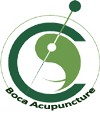Click here to watch our video.
Blog
Boston and Boca Acupuncturist explains how we can use healthier diet to prevent knee pain, shoulder pain and back pain and lose weight naturally
Click here to know more.
Boca Acupuncturist explains how acupuncture and acupressure helps reduce the blurry vision, dry eye, wrist pain neck pain and shoulder pain
Click here to watch our video.
Boca Acupuncturist explains how and why acupuncture can help erectile dysfunction (ED) with scientific evidence
Click here to read our full article.
How can acupuncture help a 101 years old lady improve nerve function, blood circulation and vision to reduce the hand numbness and weakness due to neck pain and nerve inflammation?
Click here to watch our video.
Scientific evidence verified that acupuncture can help IBS patients to build healthy gut lining
Click here to watch our video.
How can acupuncture help reduce tremor, anxiety and stress?
Click here to know more.
What is the best way to cope with acid reflux?
Click here to watch our video.
Boston and Boca acupuncturists explain how acupuncture can help sciatica pain.
Click here to read the full article.
Boston and Boca acupuncturist just published an article: Why can acupuncture help shoulder pain, tendonitis and frozen shoulder?
An immobilized shoulder is uncomfortable, debilitating, and risky to human health, as it hinders essential bodily functions and makes it impossible for the patient to carry out everyday activities, such as writing, taking their phone out of their pocket, or even raising their hand to comb their hair.
Shoulder pain can be caused by a number of factors, including 1) tendon inflammation 2) joint Instability 3) Arthritis 5) Fibromyalgia 6) Frozen Shoulder and 7) Subacromial impingement syndrome (SIS)- most common cause of shoulder pain.







